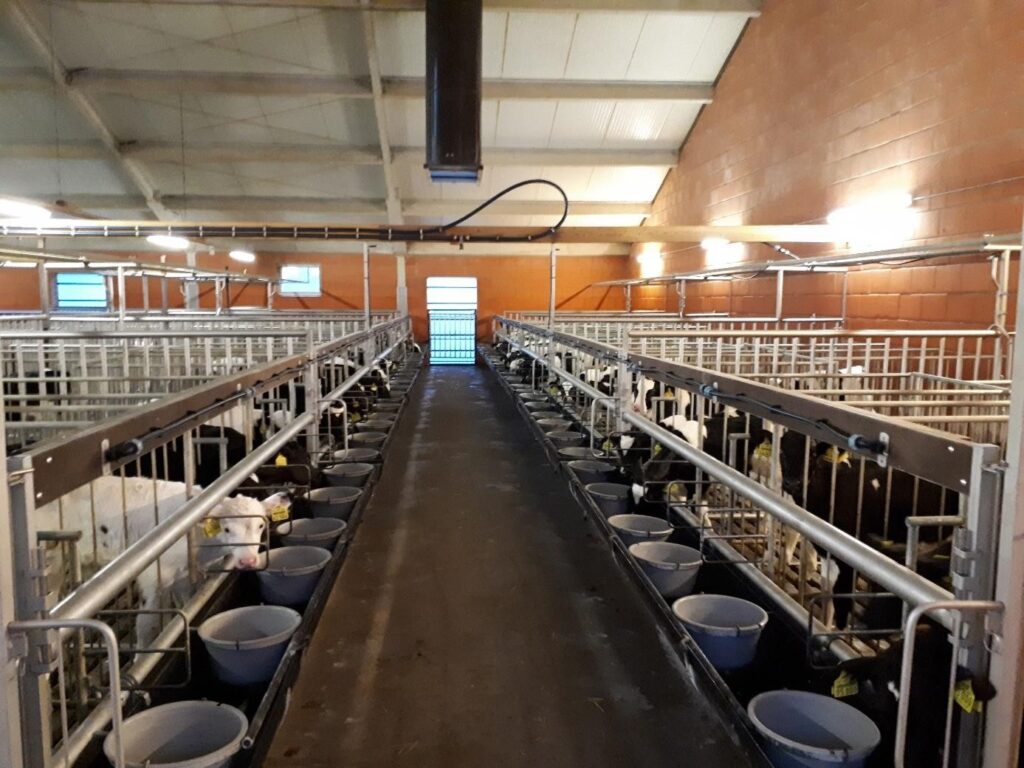It is well known that during their early months of life calves have a weak immune system. Moreover, the intestinal microbiota is permanently changing and not stable due to continuous changes in diet composition during the rearing period. For these reasons, calves are very susceptible to negative impacts of pathogens and other health challenges, and often suffer from intestinal disorders and diarrhea. Additionally, the gastrointestinal tract is in development and digestion capacity for plant- based nutrients in calves is limited. Because of these aspects, there is a high importance of supporting an early and appropriate development of the digestive and immune function in calves, and providing highly digestible nutrients.
Hydrolyzed yeast – A multi-functional feed material
During the recent years hydrolyzed yeast products have been identified as a promising feed material to deal with the previously mentioned aspects. These products deliver beneficial components from the yeast cell wall and as well from the cell cytoplasm, which have a positive effect on development and function of intestinal physiology, and hence on growth performance in calves.
Hydrolyzed yeasts are based on the whole yeast cell and processed by different methods to enhance functionality of different yeast components like nucleic acids, specific amino acids or the yeast cell wall components. Moreover, the hydrolysis process leads to an improvement of digestibility of the yeast protein. The most common used yeast strains include strains from Saccharomyces spp. of which S. cerevisiae, more commonly known as baker’s yeast, is the most well-known and studied. Nowadays other yeast strains such as Kluyveromyces fragilis are getting an increased attention for their application as functional feed source.
The effective yeast cell wall ingredients inside hydrolyzed K. fragilis, primarily mannan oligosaccharides and ß-glucans, allow an immune stimulating effect and protection against pathogenic germs, which is very important due to a low immune defense of young calves. Additionally, these cell wall components act as prebiotics, support beneficial microbial population in the intestinal tract and positively influence the gut functionality. Moreover, nucleic acids inside the yeast cytoplasm serve as a source of nucleotides, which are particularly necessary for the development of tissue with a high rate of cell replication, hence benefiting to gut functionality and immune defense of young calves. Because of a limited capacity of digestion in young calves, the supply with highly digestible nutrients is crucial. As nutritional components hydrolyzed K. fragilis provides a significant amount of highly digestible proteins and an advantageous amino acid profile, which contributes to a proper growth performance.
Feeding trial in veal calves
In order to investigate the effect of a hydrolyzed yeast product from origin K fragilis (TechnoYeast, Biochem Zusatzstoffe) in veal calves, a feeding trial was conducted on a farm in Northwestern Germany. A number of 91 Holstein Friesian bull calves with an average age of 17 days, had been divided in two groups, treatment (n=44) and control (n=47). Calves were housed individually. Both groups got a milk replacer either with or without supplementation of 10 g TechnoYeast per head per day, respectively. The yeast supplementation took place during the first 5 weeks of the fattening period.

Measured parameters were weight development, incidence of diarrhea and fecal consistency. Regarding growth performance, results showed a positive effect of yeast supplementation. Treated calves showed a higher daily gain in comparison to the control group (Figure 2). Hence, the average body weight in the treatment group was significantly higher compared to the control group at day 35 of the trial (72.5 vs. 71.1 kg, P<0.05).

The feces were scored by an established system (Score 0 = well formed, Score 1 = soft, Score 2 = fluid, Score 3 = watery). In course of the trial the incidence of diarrhea (Score 2/3) was lower in the treatment group despite a worse start (Figure 3). Average fecal consistency was on average better in the treatment group than in the control animals during the 5 trial weeks. Treated calves showed better fecal consistency especially in week 1 (P<0.05), week 2 (P<0.1) and week 4 (P<0.1) of the trial.

The current results are in line with other studies showing positive effects of hydrolyzed yeast on development of intestinal physiology, nutrient digestibility and immunity. Reduction of diarrhea occurrence, and improvement of growth performance allow the conclusion that TechnoYeast is an excellent feed material for use in young calf nutrition during the early period of life.
Andrea Remmersmann
1Dr. Bastian Hildebrand21R&D Manager Yeast Products, Biochem Zusatzstoffe GmbH, Germany2Technical Manager Central Europe, Biochem Zusatzstoffe GmbH, Germany